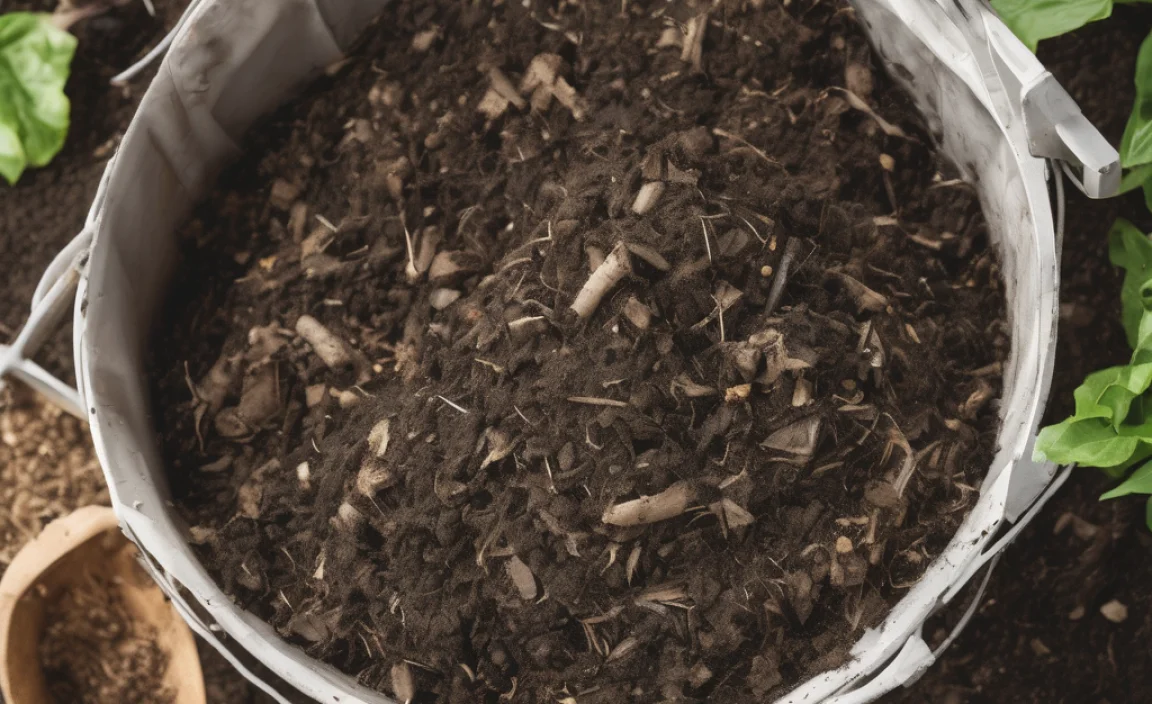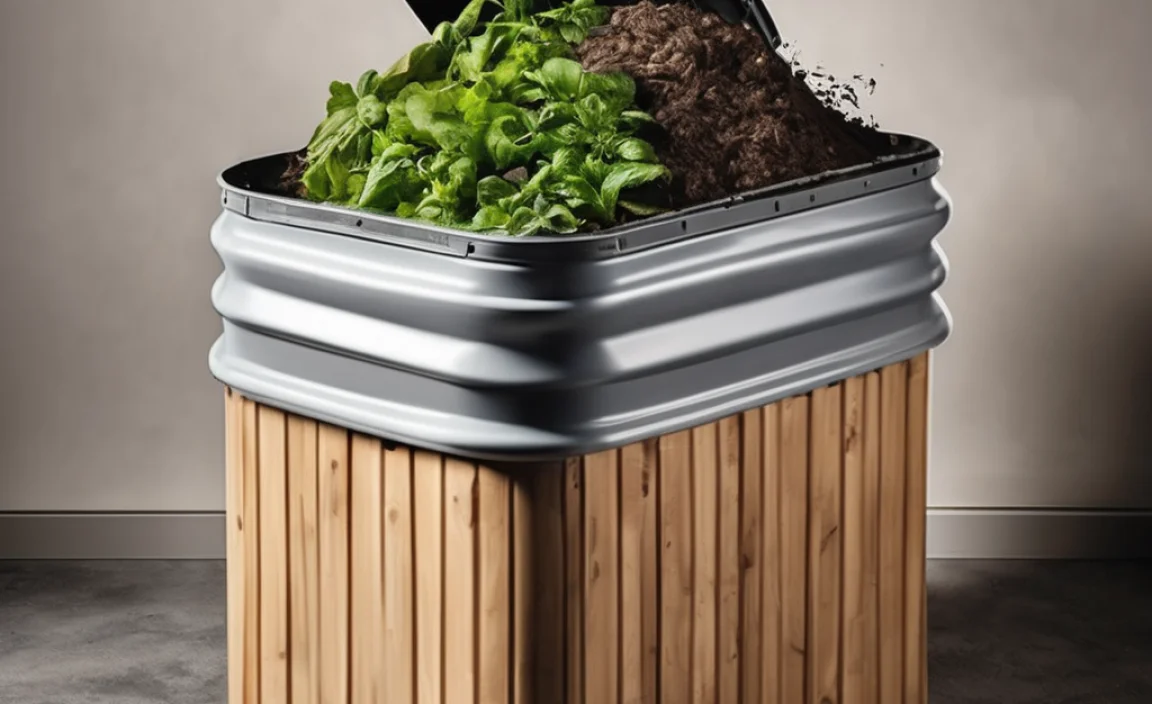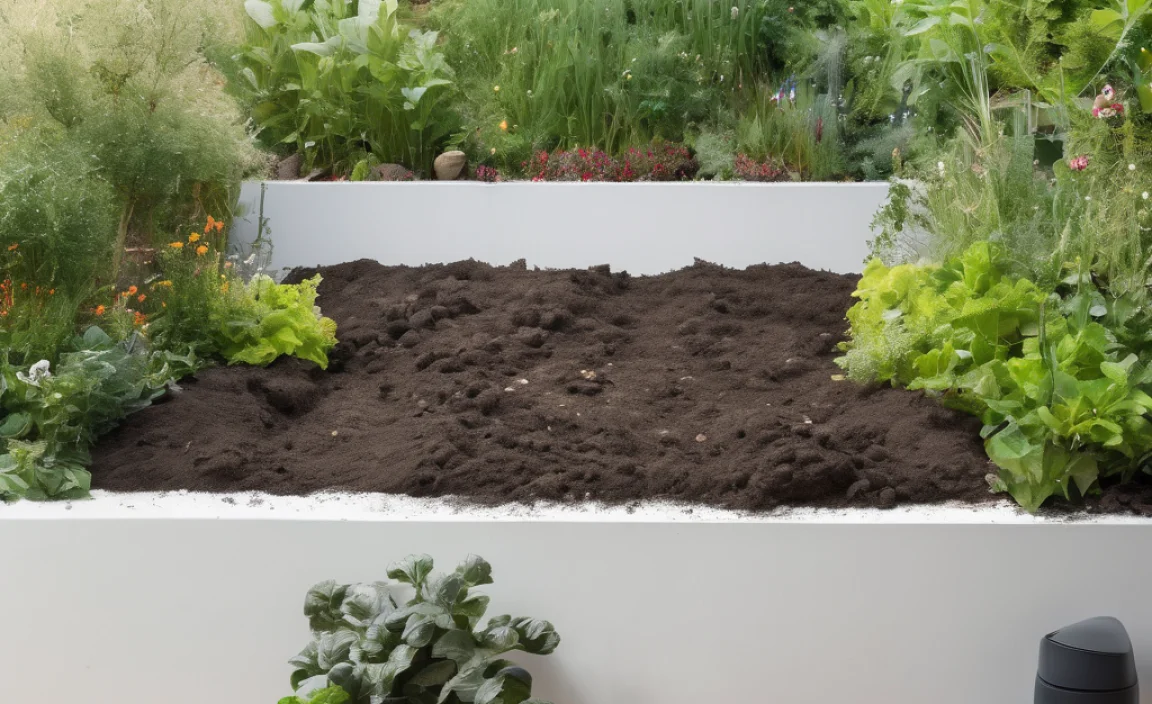Have you ever noticed a stinky smell in your bathroom? Does it seem to come from your bathtub? Why does my bathtub drain smell so bad? It can be pretty gross.
Sometimes, you might ignore it. But, the smell can get worse. It is important to find out what causes the odor. Then, you can fix it and make your bathroom smell nice again.
Let’s learn about the yucky smells. We’ll discover how to stop them. A clean bathtub drain makes for a happier home.
Key Takeaways
- Addressing why your bathtub drain smells promptly prevents bigger plumbing issues later.
- Regular cleaning with baking soda and vinegar can stop bad smells in drains.
- Hair, soap scum, and other gunk are common reasons for drain odors.
- A plumber can help if simple cleaning methods don’t solve the problem.
- Knowing what causes drain smells helps you keep your bathroom fresh.
Why Does My Bathtub Drain Smell Like Rotten Eggs?
Have you ever smelled rotten eggs in your bathroom? It is a very unpleasant smell. This smell often comes from your bathtub drain. Why does my bathtub drain smell like this? The answer is often sewer gas. Sewer gas contains hydrogen sulfide. This gas is a byproduct of waste breakdown. If your drain isn’t working right, the gas can escape. This can happen if the P-trap is dry. The P-trap is a U-shaped pipe under your sink. It is designed to hold water. This water stops the sewer gas from coming up. If you don’t use a tub often, the water can evaporate. Then, the gas can leak into your bathroom. This creates that nasty rotten egg smell.
- Sewer gas smells like rotten eggs.
- The P-trap should always have water.
- Infrequent use can dry out the P-trap.
- Hydrogen sulfide causes the bad odor.
- Bad smells can indicate plumbing problems.
Checking and maintaining your P-trap is important. Pour water down the drain sometimes. This keeps the P-trap full. You can also check for leaks around the drain. Leaks can let sewer gas escape. If the smell is very strong or doesn’t go away, call a plumber. They can check for more serious problems. These could be problems like a crack in your drain pipe. Fixing the cause will remove the smell. Then, your bathroom will smell fresh and clean again. It will be a much nicer place to be.
Fun Fact or Stat: Sewer gas can contain methane. Methane is flammable. So, it is important to fix sewer gas leaks quickly.
What is a P-Trap?
Imagine a curvy slide at a water park. That’s kind of what a P-trap looks like. It’s a U-shaped pipe under your sink and tub. Why does my bathtub drain smell bad if the P-trap isn’t working? The P-trap is made to hold a little bit of water. This water creates a seal. The seal stops sewer gases from coming up into your house. Without this water, the gases would come right up the drain. They would make your bathroom smell terrible. The P-trap is a simple but important part of your plumbing. It keeps your home smelling fresh and clean. Without it, we’d all be holding our noses!
How Can I Fill the P-Trap?
Has your bathtub drain been smelling lately? Maybe you haven’t used that tub in a while. Why does my bathtub drain smell like that? If you don’t use a drain often, the water in the P-trap can dry up. Filling the P-trap is easy. Just run the water in your bathtub for a few minutes. Let the water flow down the drain. This will refill the P-trap with fresh water. The water creates a barrier. It will block sewer gases from coming up. Doing this regularly can prevent bad smells. Then your bathroom will always smell nice.
What if Filling the P-Trap Doesn’t Work?
Okay, so you tried filling the P-trap. But, your bathtub drain still smells bad. Now what? Why does my bathtub drain smell even after you refill the P-trap? There might be another problem. A leak in the drain pipe could be the issue. Or, there might be buildup in the drain itself. Hair, soap, and other gunk can cause smells. If refilling the P-trap doesn’t work, it’s time to check for other problems. You might need to clean the drain or call a plumber.
Biofilm: A Slimy Culprit in Bathtub Drains
Have you ever felt something slimy in your bathtub drain? That slime is called biofilm. Biofilm is a collection of bacteria and other tiny living things. They stick together and form a layer on the inside of your pipes. Why does my bathtub drain smell because of biofilm? Biofilm can trap hair, soap scum, and other debris. As this stuff breaks down, it creates bad smells. The biofilm itself also produces odors. It’s like a tiny, stinky city living in your drain! Getting rid of biofilm is important for a fresh-smelling bathroom. Regular cleaning can help keep it under control.
- Biofilm is a slimy layer of bacteria.
- It traps debris in your drain.
- Decomposing matter causes bad odors.
- Biofilm itself can produce smells.
- Regular cleaning helps control biofilm.
- It grows in moist, dark places.
Cleaning your drain regularly can stop biofilm from building up. You can use baking soda and vinegar. Pour baking soda down the drain, then add vinegar. Let it fizz for about 30 minutes. Then, flush with hot water. This can help break down the biofilm. You can also use a drain snake to remove built-up gunk. If the biofilm is very bad, you might need a professional plumber. They have tools to clean your pipes thoroughly. Keeping your drains clean helps prevent bad smells. It also keeps your plumbing working well.
Fun Fact or Stat: Biofilm is also found in nature. It can be in streams, rivers, and even on rocks!
What Makes Biofilm Grow?
Have you ever wondered what makes biofilm grow in your bathtub drain? Why does my bathtub drain smell so bad because of this stuff? Biofilm loves moist, dark places. Your drain is the perfect home for it. It also needs food. Soap, hair, and skin cells are all food for biofilm. The bacteria eat these things and multiply. The more food they have, the more biofilm grows. Regular cleaning removes their food source. It helps keep the biofilm under control.
How Can I Remove Biofilm?
So, you want to get rid of the biofilm in your drain. That’s a great idea! Why does my bathtub drain smell if I don’t remove the biofilm? Removing biofilm is not too hard. You can use household items. Baking soda and vinegar are a great combination. Pour baking soda down the drain, then add vinegar. Let it fizz. This helps loosen the biofilm. Then, flush with hot water. You can also use a drain snake. This helps pull out clumps of biofilm. Do this regularly to keep your drain clean.
Are There Special Cleaners for Biofilm?
You might be wondering if there are special cleaners for biofilm. Why does my bathtub drain smell even after using regular cleaners? Yes, there are some special cleaners. These cleaners have enzymes or bacteria. They eat the biofilm. They are often more effective than regular cleaners. Look for drain cleaners that say they remove biofilm. Follow the directions on the bottle. These cleaners can help keep your drain clean and fresh.
Hair and Soap Scum Buildup in Drains
Hair and soap scum are common problems in bathtub drains. Hair can easily get caught in the drain. Soap scum is the residue left behind by soap and water. Why does my bathtub drain smell when these things build up? Hair and soap scum trap other debris. This debris decomposes and creates bad smells. The buildup can also slow down your drain. This makes it harder for water to flow. Removing hair and soap scum is important. It keeps your drain clean and working well.
- Hair easily clogs bathtub drains.
- Soap scum is a sticky residue.
- Buildup traps other debris.
- Decomposing matter causes odors.
- Slow drains are a sign of buildup.
- Regular cleaning prevents problems.
You can use a drain snake to remove hair and soap scum. A drain snake is a long, flexible tool. You insert it into the drain and twist. This grabs the hair and debris. Then, you pull it out. You can also use a wet/dry vacuum. Place the hose over the drain and turn it on. The vacuum can suck out the debris. For soap scum, try pouring boiling water down the drain. This can help dissolve the buildup. Repeat these steps regularly to keep your drain clear.
Fun Fact or Stat: The average person loses 50 to 100 hairs each day. Many of these hairs end up in the drain!
How Does Hair Clog Drains?
Have you ever wondered how hair clogs drains so easily? Why does my bathtub drain smell and get clogged all the time? Hair is very good at trapping things. It acts like a net. It catches soap scum, grease, and other debris. Over time, this creates a big, nasty clog. The clog blocks water from flowing freely. That’s why your drain gets slow. Removing hair regularly is important. It prevents these clogs from forming.
What is Soap Scum Made Of?
Do you know what soap scum is made of? It’s not just soap! Why does my bathtub drain smell like chemicals because of soap scum? Soap scum is a mix of soap and minerals in your water. When soap mixes with hard water, it creates a sticky residue. This residue sticks to your tub and drain. It’s hard to remove. Using less soap can help reduce soap scum. You can also use a water softener. This removes the minerals from your water.
How Can I Prevent Hair and Soap Scum Buildup?
Preventing hair and soap scum buildup is easier than cleaning it up! Why does my bathtub drain smell and get clogged when I could prevent it? Use a drain strainer. A drain strainer catches hair before it goes down the drain. Clean your tub and drain regularly. Wipe away soap scum after each shower. Pour boiling water down the drain once a week. These simple steps can keep your drain clear.
Checking the Bathtub Overflow Drain
The overflow drain is a small opening near the top of your bathtub. It’s designed to prevent the tub from overflowing. But, it can also be a source of bad smells. Why does my bathtub drain smell even when the main drain is clean? The overflow drain can trap hair and soap scum. This debris can decompose and create odors. Cleaning the overflow drain is important. It helps keep your bathroom smelling fresh.
- The overflow drain prevents flooding.
- It can trap hair and soap scum.
- Decomposing debris causes odors.
- Cleaning it is often overlooked.
- A toothbrush can help clean it.
- Use a drain cleaner if needed.
To clean the overflow drain, remove the cover plate. You might need a screwdriver. Once the cover is off, you can look inside. Use a flashlight to see better. Remove any visible hair or debris. You can use a bent wire or a small brush. For stubborn buildup, use a drain cleaner. Follow the directions on the bottle. Be careful not to splash the cleaner. Rinse the drain thoroughly with water. Replace the cover plate.
Fun Fact or Stat: Overflow drains were invented to prevent water damage. Water damage can be very expensive to fix.
How Do I Remove the Overflow Plate?
Removing the overflow plate is the first step to cleaning. Why does my bathtub drain smell if I can’t even get to the overflow drain? Most overflow plates are held in place with screws. Use a screwdriver to loosen the screws. Turn them counterclockwise. Be careful not to drop the screws down the drain. Once the screws are out, gently pull off the plate. Now you can access the overflow drain.
What Tools Do I Need to Clean the Overflow Drain?
To clean the overflow drain, you’ll need a few simple tools. Why does my bathtub drain smell when I don’t have the right tools to clean it? You’ll need a screwdriver to remove the overflow plate. A flashlight will help you see inside the drain. A bent wire or small brush can remove debris. You might also want to use a drain cleaner. Gloves are a good idea to protect your hands.
How Often Should I Clean the Overflow Drain?
Cleaning the overflow drain regularly is a good idea. Why does my bathtub drain smell when I forget to clean the overflow drain? You should clean it at least once a month. If you notice a bad smell, clean it more often. Regular cleaning prevents buildup. It keeps your bathroom smelling fresh. It also helps your plumbing work properly.
Bathtub Drain Smells and Plumbing Vents
Plumbing vents are pipes that go from your drains to the roof. They let air into the plumbing system. This helps water flow freely. They also let sewer gases escape outside. Why does my bathtub drain smell if I have plumbing vents? If a vent is blocked, sewer gases can’t escape. They can then come up through your drains. This can cause a bad smell in your bathroom. Checking your plumbing vents is important.
- Plumbing vents release sewer gases.
- They also help water flow.
- Blocked vents cause bad smells.
- Birds’ nests can block vents.
- Snow and ice can also block them.
- A plumber can clear blocked vents.
Check your plumbing vents on the roof. Look for any blockages. Birds’ nests, leaves, or snow can block the vents. If you can safely reach the vent, try to remove the blockage. Be careful not to fall. If you can’t reach the vent, call a plumber. They have the tools to clear the blockage safely. Clearing the vent will allow sewer gases to escape. This will remove the bad smell in your bathroom.
Fun Fact or Stat: Plumbing vents are required by building codes. They are important for safety and sanitation.
Where Are My Plumbing Vents Located?
Do you know where your plumbing vents are located? Why does my bathtub drain smell when I don’t even know where the plumbing vents are? Plumbing vents are usually on the roof. They are pipes that stick up from the roof. They are often near the bathrooms and kitchen. You might need to walk around your house to find them. Once you know where they are, you can check them for blockages.
What Can Block Plumbing Vents?
Many things can block plumbing vents. Why does my bathtub drain smell if something is blocking the vents? Birds can build nests in the vents. Leaves and debris can also fall into them. Snow and ice can block the vents in winter. Even small animals can get stuck in the vents. Checking the vents regularly can prevent these blockages.
Can I Clean Plumbing Vents Myself?
You might be wondering if you can clean plumbing vents yourself. Why does my bathtub drain smell when I could just clean the plumbing vents? If you can safely reach the vents, you can try to clean them. Use a long stick or hose to remove any blockages. Be careful not to fall off the roof. If you are not comfortable doing this, call a plumber. They can clean the vents safely.
Regular Bathtub Drain Maintenance Tips
Regular maintenance can prevent bad smells in your bathtub drain. Small actions can make a big difference. Why does my bathtub drain smell when I never do any maintenance? Flush the drain with hot water regularly. Use a drain strainer to catch hair. Clean the drain with baking soda and vinegar. These steps can keep your drain clean and fresh. They can also prevent clogs.
| Maintenance Tip | How Often | Why It Helps |
|---|---|---|
| Flush with hot water | Once a week | Dissolves soap scum and debris |
| Use a drain strainer | Always | Catches hair before it clogs |
| Baking soda and vinegar | Once a month | Breaks down buildup and odors |
| Check plumbing vents | Twice a year | Ensures proper airflow |
- Flush with hot water weekly.
- Use a drain strainer always.
- Clean with baking soda monthly.
- Check plumbing vents yearly.
- Avoid pouring grease down the drain.
- Use enzyme drain cleaners.
Avoid pouring grease down the drain. Grease can solidify and cause clogs. Use enzyme drain cleaners. These cleaners break down organic matter. They are safer than chemical cleaners. They also help prevent bad smells. By following these tips, you can keep your bathtub drain clean and fresh. You can also avoid costly plumbing repairs. A little maintenance goes a long way.
Fun Fact or Stat: Regular drain maintenance can save you hundreds of dollars. It prevents expensive plumbing repairs.
Why is Hot Water Important?
Have you ever wondered why hot water is so important for drain maintenance? Why does my bathtub drain smell and clog when I only use cold water? Hot water helps dissolve soap scum and grease. These substances can build up in your drain. Hot water breaks them down. This prevents clogs from forming. It also helps to remove bad smells. Make sure to use hot water when flushing your drain.
What Are Enzyme Drain Cleaners?
Enzyme drain cleaners are a great alternative to chemical cleaners. Why does my bathtub drain smell and I don’t want to use harsh chemicals? Enzyme cleaners use natural enzymes. These enzymes break down organic matter. This includes hair, soap, and food particles. They are safer for your pipes and the environment. They also help prevent bad smells. Look for enzyme drain cleaners at your local store.
How Can I Avoid Pouring Grease Down the Drain?
Pouring grease down the drain is a big no-no! Why does my bathtub drain smell and clog when I thought grease was okay? Grease solidifies as it cools. It sticks to the inside of your pipes. This can cause major clogs. Instead of pouring grease down the drain, let it cool. Then, scrape it into a container. You can then throw the container in the trash. This will help keep your drains clear.
Summary
Why does my bathtub drain smell? The answer can be complex. It could be sewer gas from a dry P-trap. It could be biofilm, a slimy layer of bacteria. Hair and soap scum buildup are also common causes. Blocked plumbing vents can also lead to bad smells. Regular maintenance can prevent these problems. Flush the drain with hot water regularly. Use a drain strainer to catch hair. Clean the drain with baking soda and vinegar.
Checking the overflow drain is also important. By following these tips, you can keep your bathtub drain clean and fresh. You can also avoid costly plumbing repairs. If the smell persists, call a plumber. They can diagnose and fix the problem.
Conclusion
A stinky bathtub drain is no fun. We learned many reasons why does my bathtub drain smell. Sewer gas, biofilm, and hair are common causes. Regular cleaning and maintenance are key. You can use simple methods like baking soda and vinegar. You can also check your plumbing vents. If the smell is very bad, call a plumber. They can help you solve the problem. A fresh-smelling bathroom makes for a happier home.
Frequently Asked Questions
Question No 1: Why does my bathtub drain smell like sewage?
Answer: A sewage smell from your bathtub drain usually means sewer gas is escaping into your home. This can happen if the P-trap under your sink is dry. The P-trap is designed to hold water. This water creates a seal that blocks sewer gases from coming up. If you don’t use the drain often, the water in the P-trap can evaporate. This allows the sewer gases to escape. To fix this, simply run water down the drain for a few minutes. This will refill the P-trap and block the gases. If the smell persists, there might be another problem, like a crack in the drain pipe.
Question No 2: How do I get rid of the bad smell coming from my bathtub drain?
Answer: Getting rid of a bad smell from your bathtub drain often involves cleaning the drain. Start by pouring a cup of baking soda down the drain. Then, pour a cup of vinegar down the drain. Let it fizz for about 30 minutes. This mixture helps to break down buildup and odors. After 30 minutes, flush the drain with hot water. You can also use a drain snake to remove hair and debris. If the smell persists, check your plumbing vents. Make sure they are not blocked. Sometimes why does my bathtub drain smell is a more complex issue.
Question No 3: What is biofilm, and how does it cause drain smells?
Answer: Biofilm is a slimy layer of bacteria and other microorganisms. It can grow on the inside of your drain pipes. Biofilm traps hair, soap scum, and other debris. As this debris decomposes, it creates bad smells. The biofilm itself can also produce odors. It’s like a tiny, stinky ecosystem living in your drain! To remove biofilm, use a combination of baking soda and vinegar. You can also use enzyme drain cleaners. These cleaners are designed to break down biofilm. Regular cleaning helps prevent biofilm from building up.
Question No 4: Can a blocked plumbing vent cause my bathtub drain to smell?
Answer: Yes, a blocked plumbing vent can definitely cause your bathtub drain to smell. Plumbing vents are pipes that go from your drains to the roof. They allow air into the plumbing system. This helps water flow freely. They also allow sewer gases to escape outside. If a vent is blocked, sewer gases can’t escape. They can then come up through your drains. This causes a bad smell in your bathroom. Check your plumbing vents for blockages. Birds’ nests, leaves, or snow can block them. If you can’t reach the vents safely, call a plumber.
Question No 5: How often should I clean my bathtub drain to prevent bad smells?
Answer: Cleaning your bathtub drain regularly is important. This prevents bad smells. You should clean it at least once a month. If you notice a bad smell, clean it more often. Regular cleaning removes hair, soap scum, and other debris. This prevents them from decomposing and causing odors. Use a combination of baking soda and vinegar. Flush the drain with hot water. You can also use a drain snake. These simple steps can keep your drain clean and fresh. Sometimes, knowing why does my bathtub drain smell helps you stay on top of a cleaning schedule.
Question No 6: What should I do if my bathtub drain still smells bad after cleaning it?
Answer: If your bathtub drain still smells bad after cleaning it, there might be a more serious problem. First, make sure you have thoroughly cleaned the drain. Check the overflow drain for buildup. Check your plumbing vents for blockages. If the smell persists, call a plumber. They can inspect your plumbing system. They can identify any hidden problems. There might be a crack in your drain pipe. Or there could be a problem with your sewer line. A plumber can fix these problems and remove the bad smell. Then you will know why does my bathtub drain smell.






